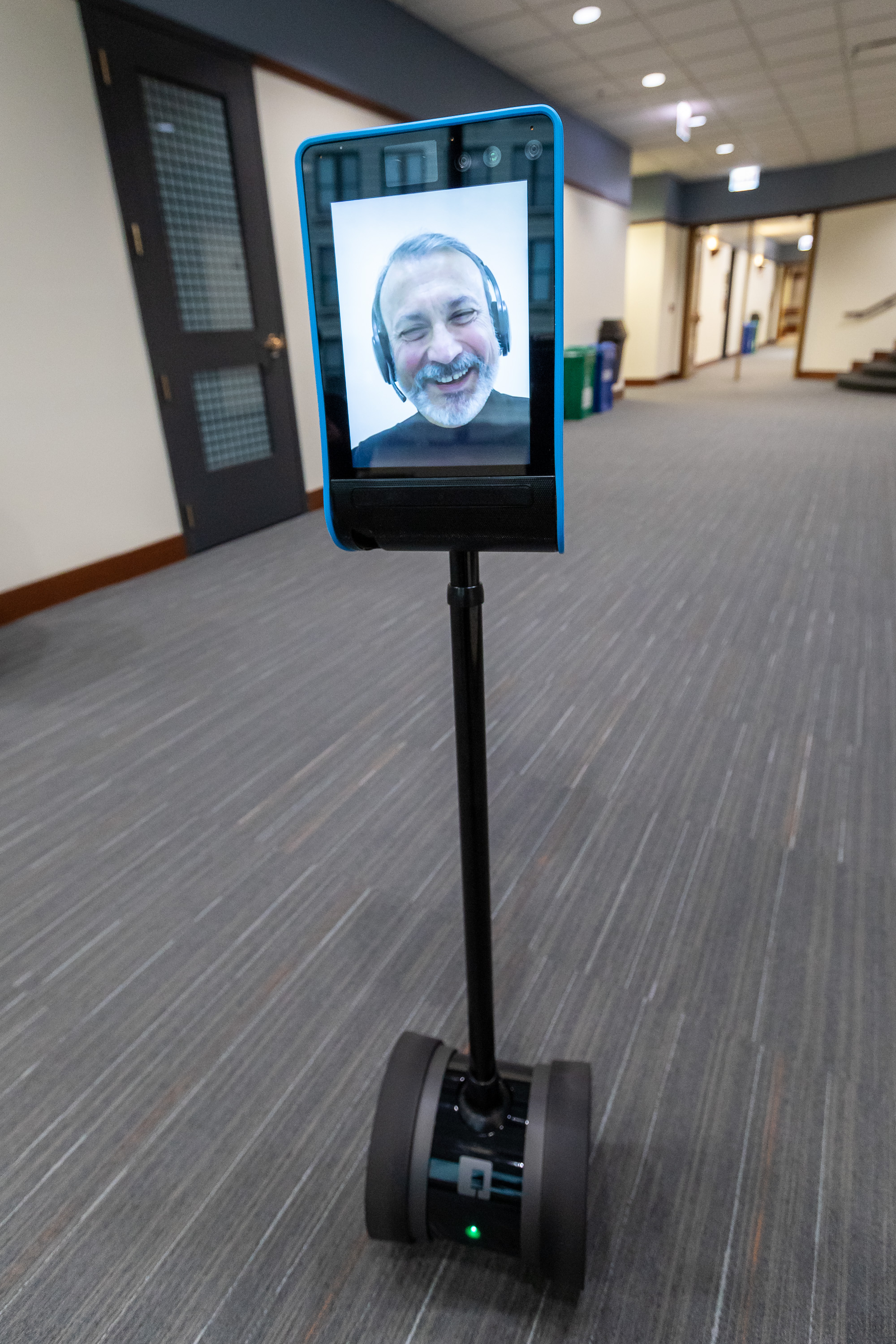What are the underlying causes of gun violence? What’s it like to work in a game studio? How do you best teach an online course? With support from the Academic Growth and Innovation Fund, these are a few of the questions DePaul faculty are addressing. DePaul’s inaugural Innovation Day, held Jan. 24, showcased faculty initiatives and offered participants guidance on how to pursue their own ideas.
“Innovation can be found in every aspect of our institution,” says Salma Ghanem, interim provost. “We see this in our academic programs, the ways our community engages in service learning and the research undertaken by faculty and students. We created Innovation Day to celebrate and showcase the work being done at DePaul.”
From prototypes to working models to new ideas, the day’s presentations and conversations allowed attendees to witness the outcomes and positive impact of the AGIF projects.
Established in 2018, the AGIF uses its yearly $2 million budget to find, encourage and support innovative academic ideas produced on campus.
With the help of the AGIF, for example, associate professor of social work Noam Ostrander and the Chicago Gun Violence Research Collaborative generated a research framework to guide efforts to address the underlying causes of gun violence.
In 2017, the CGVRC established a fellowship program to bring together faculty and students from institutions across Chicago. In addition to academic fellows, this year the CGVRC will have community fellows to not only reflect the organization’s values but also provide an educational pathway for local citizens.
The AGIF also helped Paul Booth, a professor of media and cinema studies, and Bree McEwan, associate professor of communication studies, develop the Virtual and Augmented Reality Communication lab, aimed at helping students understand expanding VAR technologies in the field of digital media.
 Guillermo Vásquez de Velasco, dean of the College of Liberal Arts and Social Sciences, participated in Innovation Day via telepresence robot. (DePaul University/Jeff Carrion)
Guillermo Vásquez de Velasco, dean of the College of Liberal Arts and Social Sciences, participated in Innovation Day via telepresence robot. (DePaul University/Jeff Carrion)
"The AGIF was instrumental in helping us develop the VARC lab,” Booth says. “Without the help and guidance of the grant, all our dreams would have remained virtual."
Booth and McEwan expect the lab to serve as a space for inventive collaboration across multiple fields in communication and a research hub for virtual and augmented reality applications.
With a goal of increased recruitment and retention, Raffaella Settimi, associate dean in the College of Computing and Digital Media; Terry Steinbach, associate dean in the College of Computing and Digital Media; and GianMario Besana, associate provost of global engagement and online learning, focused their AGIF funds on developing a model to create and support high production value online programs.
The team piloted the model with DePaul’s MS in Data Science. Using expert advice form the Center for Teaching and Learning, they developed online courses based on best practices in instructional design. This included the implementation of videos, lightboard technology, interactive content on D2L and courses offered via Zoom. The team also created a dedicated admission and advising process specific to online students, ultimately better serving the needs of those students and connecting them to university resources.
In addition to updates on projects funded through the AGIF, Innovation Day also featured a panel discussion with John Culbert, dean for The Theatre School; David Miller, dean for the College of Computing and Digital Media; and Guillermo Vasquez de Velasco, dean for the College of Liberal Arts and Social Sciences - who participated via a telepresence robot. They discussed innovation as a college imperative.
A panel of experts closed out the event by discussing the innovation lifecycle: advancing from idea to impact.
“It was a true learning experience to hear from the panelists who have successfully navigated the innovation lifecycle,” says Daniela Stan Raicu, associate provost for research. “What an opportunity to see firsthand how ideas are turned into valuable outcomes.”
The next deadline for the AGIF is midnight on Monday, Feb. 17 for projects starting July 1. All full-time faculty and staff are eligible to apply for grant funds. Learn more on the
Office of Research Services website.
The second annual Innovation Day is set for Jan. 22, 2021.